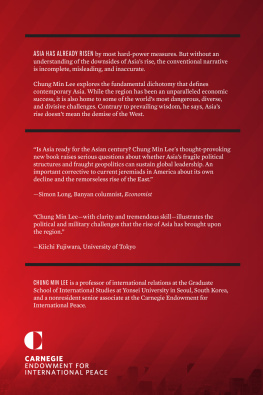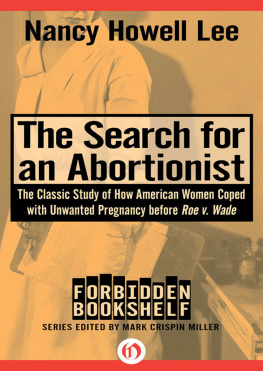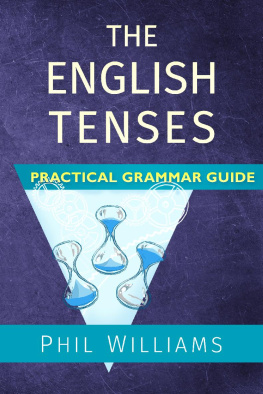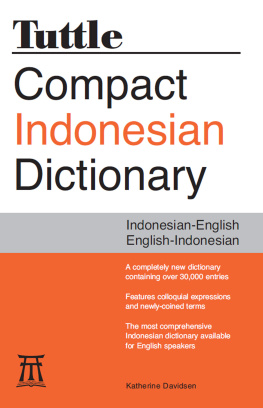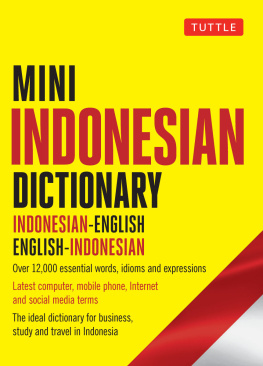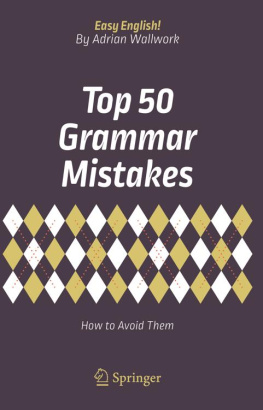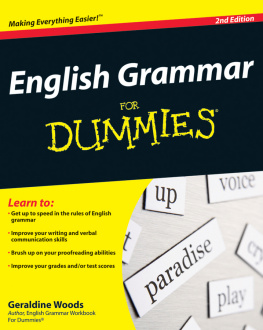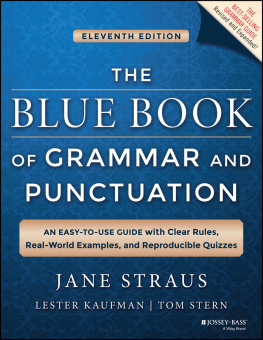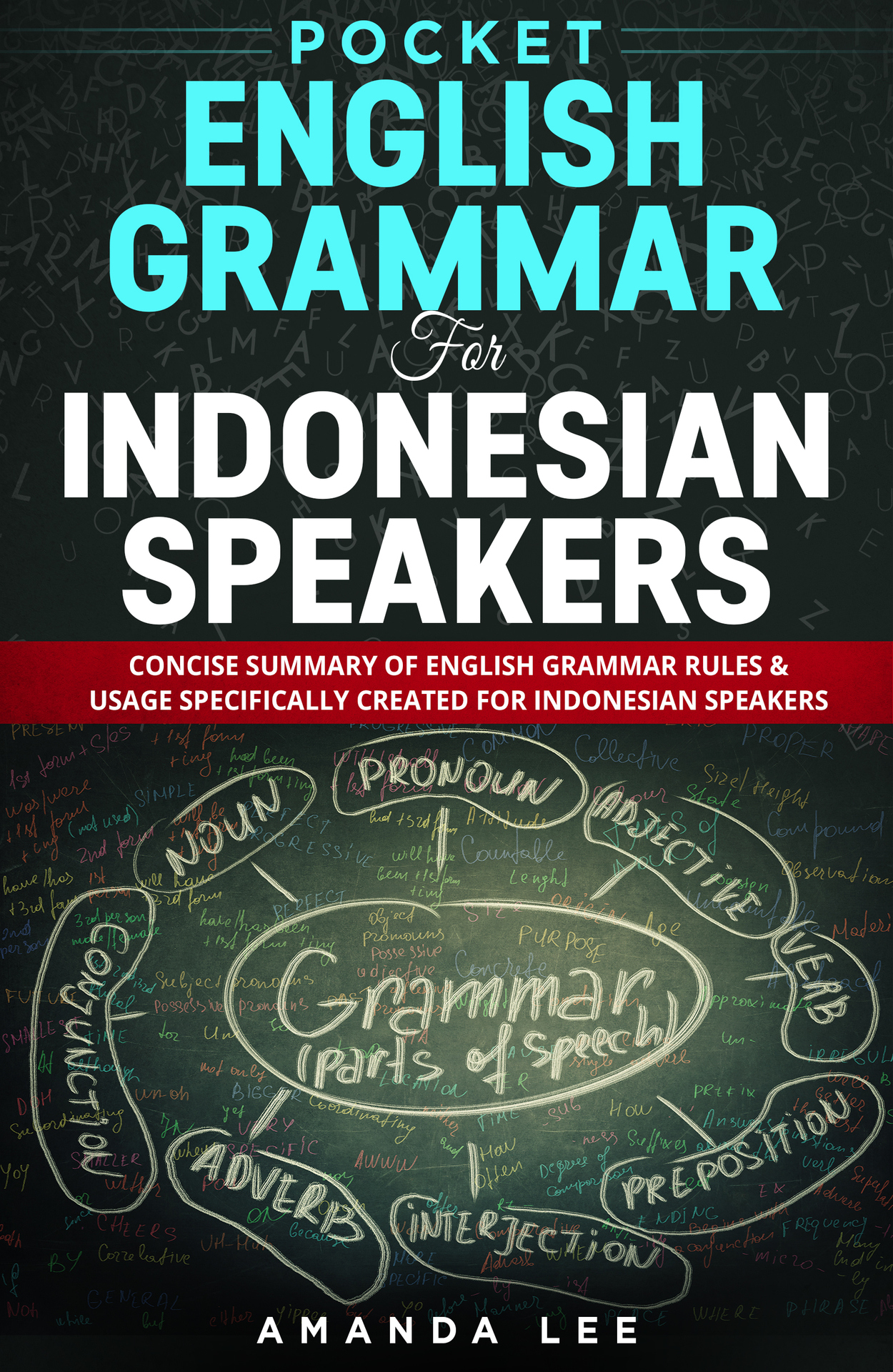POCKET ENGLISH GRAMMAR FOR INDONESIAN SPEAKERS
Concise summary of English grammar rules & usage specifically created for Indonesian Speakers
Amanda Lee
Copyright 2020 Amanda Lee
All rights reserved
No part of this book may be reproduced, or stored in a retrieval system, or transmitted in any form or by any means, electronic, mechanical, photocopying, recording, or otherwise, without express written permission of the publisher.
Contents
1 TENSES
Definisi: Perubahan bentuk kata kerja dalam Bahasa Inggris yang menunjukkan kapan terjadinya.
PAST | PRESENT | FUTURE |
Simple | Simple | Simple |
Continuous | Continuous | Continuous |
Perfect | Perfect | Perfect |
Perfect Continuous | Perfect Continuous | Perfect Continuous |
1.1 THE SIMPLE PAST TENSE
Gunanya : untuk menunjukkan suatu perbuatan/tindakan yang telah terjadi pada waktu tertentu di waktu lampau. Di sini ditekankan saat atau waktu terjadinya perbuatan itu.
Struktur:
(+) | Subject + V-II (ed) | John helped me yesterday. |
(-) | Subject + did not + V-I tanpa to | John did not help me yesterday. |
(?) | Did + subject + V-I tanpa to | Did John help me yesterday? |
(?) | Wh- + did + subject + V-I tanpa to | Who helped Mary? Whom did John help yesterday? When did John help Mary? |
Adverb of Time:
- Yesterday (morning/noon/afternoon/evening/night)
- The day before yesterday
- Last (night/Sunday/week/month/year)
- This morning
- ago (3 weeks/5 days/2 months/10 years/long time ago)
1.2 THE SIMPLE PRESENT TENSE
Gunanya : untuk menunjukkan perbuatan-perbuatan yang:
terjadi berulang-ulang (repeated actions)
merupakan kebiasan (habitual actions)
menunjukkan kemampuan/kepandaian (ability)
tidak berubah/mutlak (absolute actions)
Struktur:
(+) | (+) Subject + V-I tanpa to | I eat rice everyday. She eats rice everyday. |
(-) | Subject + do not/does not + V-I tanpa to | I do not eat rice everyday. She does not eat rice everyday. |
(?) | Do/Does + subject + V-I tanpa to | Do you eat rice every day? Does she eat rice every day? |
(?) | Wh- + do/does + subject + V-I tanpa to | What do you eat every day? What does she eat every day? |
Adverb of time:
- Every (day/time/night/morning/week/month/year/Sunday)
- Often
- Always
- Usually
- Sometimes
- Rarely
- Never
- Generally
1.3 THE SIMPLE FUTURE TENSE
Gunanya: untuk menunjukkan suatu perbuatan/tindakan yang akan terjadi di masa yang akan datang.
Struktur:
(+) | Subject + shall/will + V-I tanpa to | John will help Mary tomorrow. |
(-) | Subject + shall not/will not + V-I tanpa to | John will not help Mary tomorrow. |
(?) | Shall/Will + subject + V-I tanpa to | Will John help Mary tomorrow? |
(?) | Wh- + shall/will + subject + V-I tanpa to | Who will help Mary tomorrow? |
Catatan:
- Shall: untuk subject I dan We (Old English)
- Will: untuk semua subject (Modern English)
Adverb of Time:
- Tomorrow (morning/noon/afternoon/night)
- Tonight
- The day after tomorrow
- Next (Sunday/week/month/year)
- In the future
1.4 THE PAST CONTINUOUS TENSE
Gunanya : untuk menunjukkan suatu perbuatan atau tindakan yang sedang terjadi di waktu lampau dan biasanya bersamaan terjadinya dengan perbuatan lain di waktu lampau.
Struktur:
(+) | Subject + was/were + V-ing | She was studying. They were studying. |
(-) | Subject + was not/were not + V-ing | She was not studying. They were not studying. |
(?) | Was/Were + subject + V-ing | Was she studying? Were they studying? |
(?) | Wh- + was/were + subject + V-ing | Where was she studying? What were they studying? |
Conjunctions (Kata Sambung):
| While (sementara) | He was working hard while his son was playing |
| When (ketika) | I was sleeping when father came home last night |
| As (ketika) | Last month, as I was sitting outside |
1.5 THE PRESENT CONTINUOUS TENSE
Gunanya: untuk menunjukkan suatu perbuatan atau tindakan yang sedang terjadi sekarang pada saat diucapkan.
Struktur:
(+) | Subject + am/is/are + V-ing | I am sleeping. She is studying. |
(-) | Subject + am not/is not/are not + V-ing | I am not sleeping. She is not studying. |
(?) | Am/Is/Are + subject + V-ing | Are you sleeping? Is she studying? |
(?) | Wh- + am/is/are + subject + V-ing | Who is sleeping? What is she studying? |
Adverb of Time:
- Now/ Right now
- At this moment
1.6 THE FUTURE CONTINUOUS TENSE
Gunanya: untuk menunjukkan suatu perbuatan atau tindakan yang akan sedang terjadi pada waktu tertentu di masa yang akan datang.
Struktur:
(+) | Subject + will + be + V-ing |
(-) | Subject + will + not + be + V-ing |
(?) | Will + subject + be + V-ing? |
(?) | Wh- + will + subject + be + V-ing? |
Contoh:
- I will be teaching here at this hour tomorrow.
- We will be sitting in the classroom at this moment tomorrow.
- At this hour next Sunday, we will be praying at the church.
1.7 THE PAST PERFECT TENSE
Gunanya: untuk menunjukkan suatu perbuatan atau tindakan yang telah selesai terjadi sebelum perbuatan lain terjadi di waktu lampau (perbuatan yang satu mendahului perbuatan yang lain).
Struktur:




